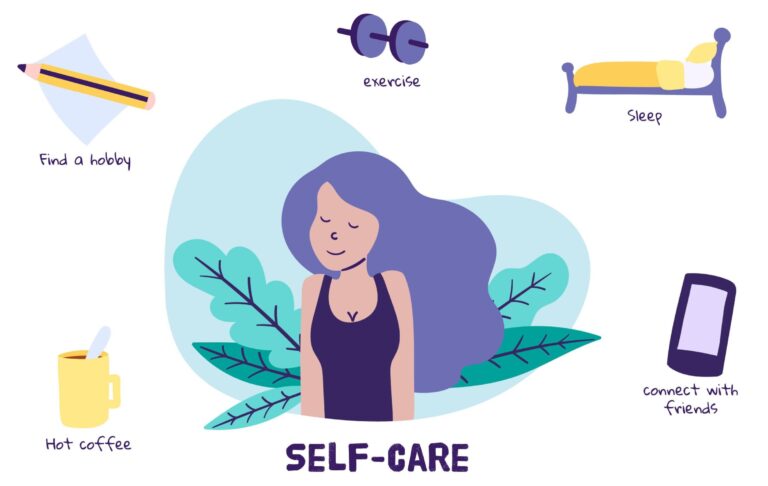Hormones play a key role in regulating everything from your energy and mood to metabolism and sleep. When your hormones are imbalanced, it can cause frustrating symptoms like fatigue, mood swings, weight changes, and sleep problems. The good news is that you don’t need complicated treatments to feel better. By making simple, natural changes to your daily routine, diet, and lifestyle, you can support natural hormonal balance and improve your overall health.
In this post, you’ll learn easy tips you can start using today to help balance your hormones naturally.
Table of Contents
- 1 Understanding Hormones and Hormonal Balance
- 2 Spotting the Signs: 7 Common Symptoms of Hormonal Imbalance
- 3 Supporting Your Hormonal Health Naturally
- 4 Daily Habits That Help Keep Your Hormones in Harmony
- 5 Mind-Body Connection: How Hormones Affect Your Mental Health
- 6 When Natural Isn’t Enough: Knowing When to Get Tested and Seek Help
- 7 Take Charge of Your Hormones Starting Today
- 8 Frequently Asked Questions (FAQ)
Understanding Hormones and Hormonal Balance
Hormones are chemical messengers produced by glands in your body, such as the thyroid, adrenal glands, and reproductive organs. They regulate many important functions, such as mood, energy, metabolism, digestion, and sleep.
Hormone balance means that your hormones are present in the right amounts and are working properly to keep your body healthy. When hormone levels are too high or too low, it can cause imbalances that disrupt your body’s normal functions and lead to uncomfortable symptoms.
Knowing how hormones work is the first step to recognizing when your body needs help and how you can restore natural hormone balance through simple lifestyle choices.
Spotting the Signs: 7 Common Symptoms of Hormonal Imbalance
Hormone imbalances can affect your body in many ways, but sometimes the signs are easily ignored. Here are seven common symptoms that may indicate your hormones are imbalanced:
- Fatigue and low energy – feeling tired even after a full night’s sleep.
- Mood swings and anxiety – sudden feelings of irritability, anxiety or depression.
- Unexplained weight change – weight gain or loss without changes in diet or exercise.
- Sleep problems – Having trouble sleeping, staying asleep, or being restless.
- Hair thinning or loss – noticeable changes in hair volume or texture.
- Irregular periods or menstrual problems (for women) – periods that are infrequent, heavy or painful.
- Digestive problems – bloating, constipation or other digestive issues.

If you’re experiencing one or more of these symptoms regularly, it could indicate that your hormones need attention. The good news is that several natural strategies can help bring them back into balance and support your journey toward natural hormonal balance.To understand more about the causes and symptoms of hormonal imbalance, explore this article from Cleveland Clinic.
Supporting Your Hormonal Health Naturally
Fuel your body with plant foods:
Include colorful fruits, leafy greens, nuts, and seeds (like flax and chia). These provide essential vitamins, minerals, and healthy fats that help your hormones function smoothly and support natural hormonal balance.
Drink herbal teas:
Try spearmint or chasteberry tea, both known for their traditional use in supporting natural hormonal balance.
Consider popular supplements (with caution):
Adaptogenic herbs like vitamin D, magnesium, and ashwagandha are commonly used to support stress management and hormone health. Some people use them specifically to encourage natural hormonal balance.
Remember: Everyone is unique 
What works for one person might not work for another, so listen to your body’s signals.
Always check with a healthcare professional:
Before adding new supplements or making major lifestyle changes, consult a healthcare provider to ensure your approach is safe and right for you.
Daily Habits That Help Keep Your Hormones in Harmony
- Prioritize good sleep: To improve your health and hormone levels, try to get 7 to 9 hours of uninterrupted sleep every night.
- Manage stress: Use techniques like meditation, deep breathing or yoga to keep stress hormones in check and promote natural hormone balance.
- Stay active regularly: Moderate exercise like walking, swimming or cycling supports hormone balance and keeps your mood up.
- Maintain a steady diet: Maintaining a steady diet helps keep blood sugar levels stable, a key factor in hormone stabilization.
- Limit processed and glucose-rich foods: These can trigger hormone spikes and spikes, throwing your body off balance.
- Don’t overeat: Eating a healthy diet helps your body maintain balance, including high blood sugar levels.
- Avoid overeating: Eating a healthy diet helps your body maintain balance.
- A natural regimen: Sleep, food and activity help your body maintain its natural hormone balance and its daily rhythms.

Small daily changes can make a big difference in hormone health – create habits that support your balance and overall health.
Mind-Body Connection: How Hormones Affect Your Mental Health
Do you know how your hormones, your mood and mental clarity can affect your physical health? When hormones like cortisol, estrogen or serotonin are imbalanced, you may feel more anxious, experience mood swings or suffer from persistent brain fog. These effects occur because hormones regulate chemistry and your response to stress.
The good news is that even minor adjustments to your relationships can make a big difference. Meditation, deep breathing and yoga can calm your nervous system and reduce stress hormones. Time out, socializing with friends or pursuing hobbies also supports mental health and contributes to natural hormone balance.
Pay attention to how you feel – your body often sends subtle signals when something is off. If you have frequent mood swings or mental fatigue, it could be an indication that you are not paying attention to your hormones properly.
Remember that your body and mind work together to make you feel your best.
When Natural Isn’t Enough: Knowing When to Get Tested and Seek Help
Sometimes, even after making healthy changes, hormonal imbalances may persist. In such cases, seeking professional help is the next smart step.
Your healthcare provider may suggest tests to check things like thyroid function, cortisol levels (a major stress hormone), or sex hormones like estrogen and progesterone. These tests help identify specific imbalances that may require targeted support or treatment.
Keep an eye out for persistent fatigue, severe mood swings, irregular menstrual cycles, unexplained weight changes, or sudden hair loss. If these issues interfere with daily life, a medical evaluation can provide clarity and help you get back to natural hormonal balance.
Testing is typically straightforward and can lead to treatment options ranging from lifestyle adjustments to medication or hormone therapy, customized to your unique needs.
Seeking help isn’t the last resort – it’s a proactive step toward restoring your balance and feeling like yourself again.
Take Charge of Your Hormones Starting Today
Balancing your hormones naturally comes down to small, steady changes — nourishing your body with whole foods, moving consistently, managing stress, and paying attention to what your body needs.
Start with simple steps like improving your sleep or adding a calming activity. Over time, these actions can lead to noticeable improvements in how you feel every day — helping you maintain natural hormonal balance in a sustainable way.
Feel free to share your experiences or ask questions in the comments — your story could inspire someone else on their wellness journey. And for more, check out our other posts and resources to support your holistic well-being.
You have the power to create balance — and your body and mind will thank you.
Frequently Asked Questions (FAQ)
What really helps achieve natural hormone balance?
A healthy mix of nutritious, plant-based foods, regular exercise, quality sleep, stress management, and sometimes natural supplements can support natural hormone balance. Everybody is different, so it’s important to know what works for you.
Can imbalances affect my ability to maintain natural hormonal balance?
Yes. If your body is chronically stressed, not getting proper nutrition, or struggling with underlying medical conditions, it can interfere with your ability to maintain natural hormonal balance. Recognizing and addressing these factors is the key to feeling better.
Can hormonal imbalances cause hair loss, and how does natural hormonal balancing help?
Yes, hormonal imbalances — particularly those involving the thyroid or sex hormones — can contribute to hair loss. Working toward natural hormonal balance can reduce hair loss and help promote healthy hair growth. Other factors, such as stress and nutrition, also play a role, so it’s important to take a holistic approach and consult a healthcare provider if needed.
How long does it take to restore natural hormonal balance after making lifestyle changes?
Everyone is different. Improvements can be seen in a few weeks for some people and months for others. Staying patient and consistent is important when working toward natural hormonal balance.
You Might Also Like
How to Use the 8 Dimensions of Wellness to Balance Your Life
Learn how to align different areas of your life to support overall health and hormonal balance.10 Tech-Free Hobbies to Recharge Your Mind and Boost Mental Health
Lower stress levels and support hormonal health through calming, screen-free activities.Exercise for Clear Skin: How Fitness Habits Help Clear Your Skin Naturally
Explore how regular movement can support hormone regulation and skin clarity.

